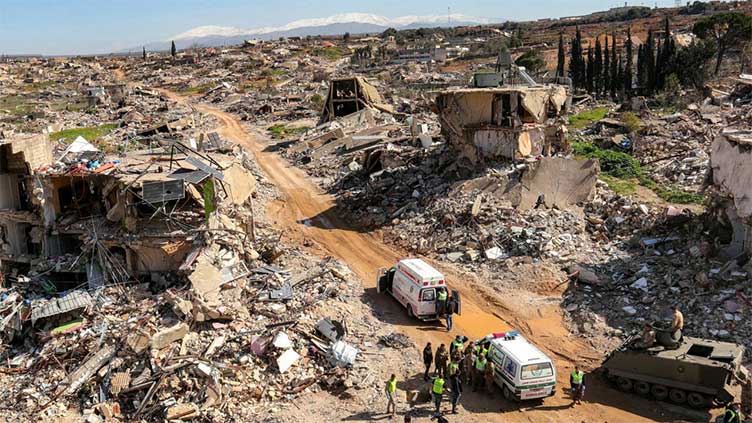Returning Lebanese say find 'total destruction' after Israel pullout

World
Israeli forces withdrew from a series of border villages including southeast Lebanon's Odaisseh.
ODAISSEH (Lebanon) (AFP) – Ali Qashmar walked into his south Lebanon hometown on the Israeli border Tuesday to find bulldozed fields and piles of rubble where there used to be neighbourhoods brimming with life.
"We came back to breathe the air of our lands and village, and we found our homes destroyed," said Qashmar, 74, from Odaisseh.
Qashmar, his children and their families fled in October 2023, after Hezbollah initiated cross-border hostilities with Israel over the war in the Gaza Strip.
More than a year later, the town "seemed totally abandoned, empty", he said.
"There was total destruction. We have nowhere to live" now, he added.
Israeli forces withdrew from a series of border villages including southeast Lebanon's Odaisseh, Kfar Kila, Mais al-Jabal, Markaba and Hula under an extended ceasefire deadline that expired on Tuesday.
AFP correspondents saw vast destruction around the towns and villages, with long lines of cars waiting for hours from the early morning for the Lebanese army to allow residents to go in.
Lebanon's army began deploying on Monday in 11 border towns and villages, removing dirt barriers the Israeli military had set up, later beginning to open roads and check for unexploded ordnance.
'IN SPITE OF THEM'
Many people who did not want to wait for roads to be cleared or army authorisation for vehicles entered their villages on foot, only to find devastated homes, streets and agricultural land.
A stunned Qashmar pointed to where buildings had once stood, the walls of nearby homes also collapsed or damaged.
"This is my home. The building had three floors, my children lived here too," he said as he surveyed the scene.
His home looked out at the Israeli kibbutz community of Misgav Am across the border.
"These are my siblings' homes -- they've all been destroyed," Qashmar added.
The November 27 ceasefire came after two months of all-out war between Israel and Hezbollah, and more than a year of cross-border hostilities.
Under the deal, Lebanon's army was to deploy as Israeli forces withdrew from south Lebanon over a 60-day period that was later extended to February 18, and Hezbollah was to remove any fighters and infrastructure.
Israel said Monday its troops would remain temporarily in five "strategic" locations.
At one of these points, between Odaisseh and Kfar Kila, AFP correspondents saw high dirt barriers, but no sign of Israeli soldiers.
Mohammed Mweisi said he did not care if Israeli forces were near Odaisseh.
"We will return to our villages -- whether they want or not, we'll go back in spite of them," he said.
UNEXPLODED BOMBS
An AFP photographer saw Lebanese army warnings along the road about the risk of unexploded ordnance in the rubble, reading: "Don't go near, don't touch, report it immediately".
In Odaisseh and villages nearby where the Israeli army had withdrawn, several residents said the destruction was so bad that their homes and neighbourhoods were unrecognisable.
After the ceasefire, Lebanon's National News Agency repeatedly reported huge explosions as Israeli ground forces dynamited buildings in areas where they were still operating.
In November before the ceasefire, a World Bank report said the conflict was estimated to have damaged almost 100,000 housing units.
Lebanese authorities have said more than 4,000 people had been killed, a figure that includes hundreds of Hezbollah fighters.
Some families of Hezbollah fighters are still waiting for their bodies, and AFP photographers saw ambulances entering a number of border villages on Tuesday.
Samira Jumaa was among those who returned to Kfar Kila in the early morning along with dozens of other residents, some carrying pictures of their sons or yellow Hezbollah flags.
"He came here with his comrades... We are certain they were martyred, but we hope to find out something," she added.


